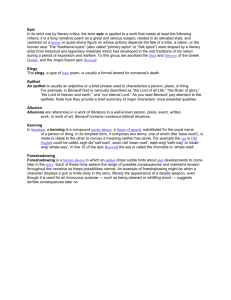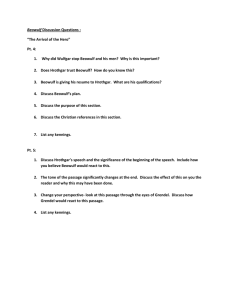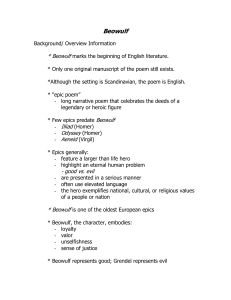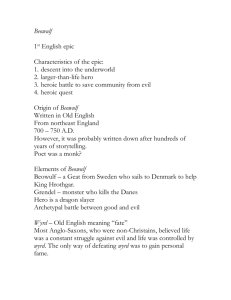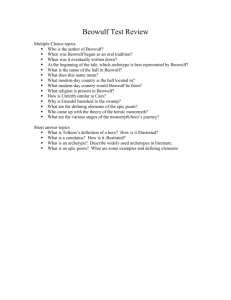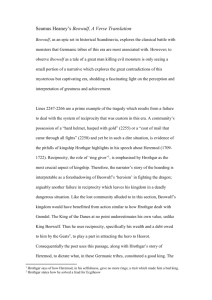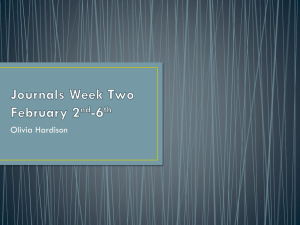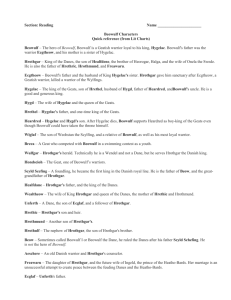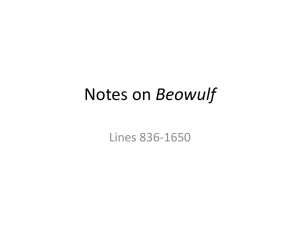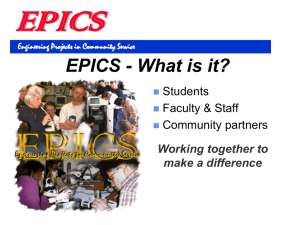Beowulf is an epic—a long narrative poem, sometimes developed
advertisement
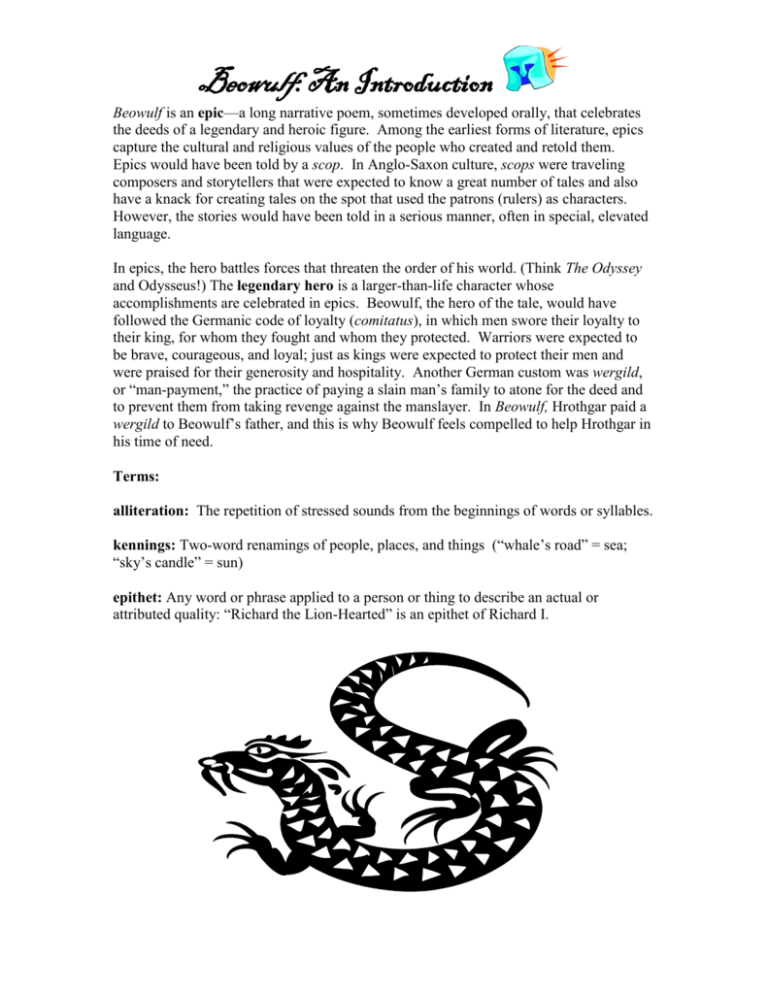
Beowulf: An Introduction Beowulf is an epic—a long narrative poem, sometimes developed orally, that celebrates the deeds of a legendary and heroic figure. Among the earliest forms of literature, epics capture the cultural and religious values of the people who created and retold them. Epics would have been told by a scop. In Anglo-Saxon culture, scops were traveling composers and storytellers that were expected to know a great number of tales and also have a knack for creating tales on the spot that used the patrons (rulers) as characters. However, the stories would have been told in a serious manner, often in special, elevated language. In epics, the hero battles forces that threaten the order of his world. (Think The Odyssey and Odysseus!) The legendary hero is a larger-than-life character whose accomplishments are celebrated in epics. Beowulf, the hero of the tale, would have followed the Germanic code of loyalty (comitatus), in which men swore their loyalty to their king, for whom they fought and whom they protected. Warriors were expected to be brave, courageous, and loyal; just as kings were expected to protect their men and were praised for their generosity and hospitality. Another German custom was wergild, or “man-payment,” the practice of paying a slain man’s family to atone for the deed and to prevent them from taking revenge against the manslayer. In Beowulf, Hrothgar paid a wergild to Beowulf’s father, and this is why Beowulf feels compelled to help Hrothgar in his time of need. Terms: alliteration: The repetition of stressed sounds from the beginnings of words or syllables. kennings: Two-word renamings of people, places, and things (“whale’s road” = sea; “sky’s candle” = sun) epithet: Any word or phrase applied to a person or thing to describe an actual or attributed quality: “Richard the Lion-Hearted” is an epithet of Richard I.
